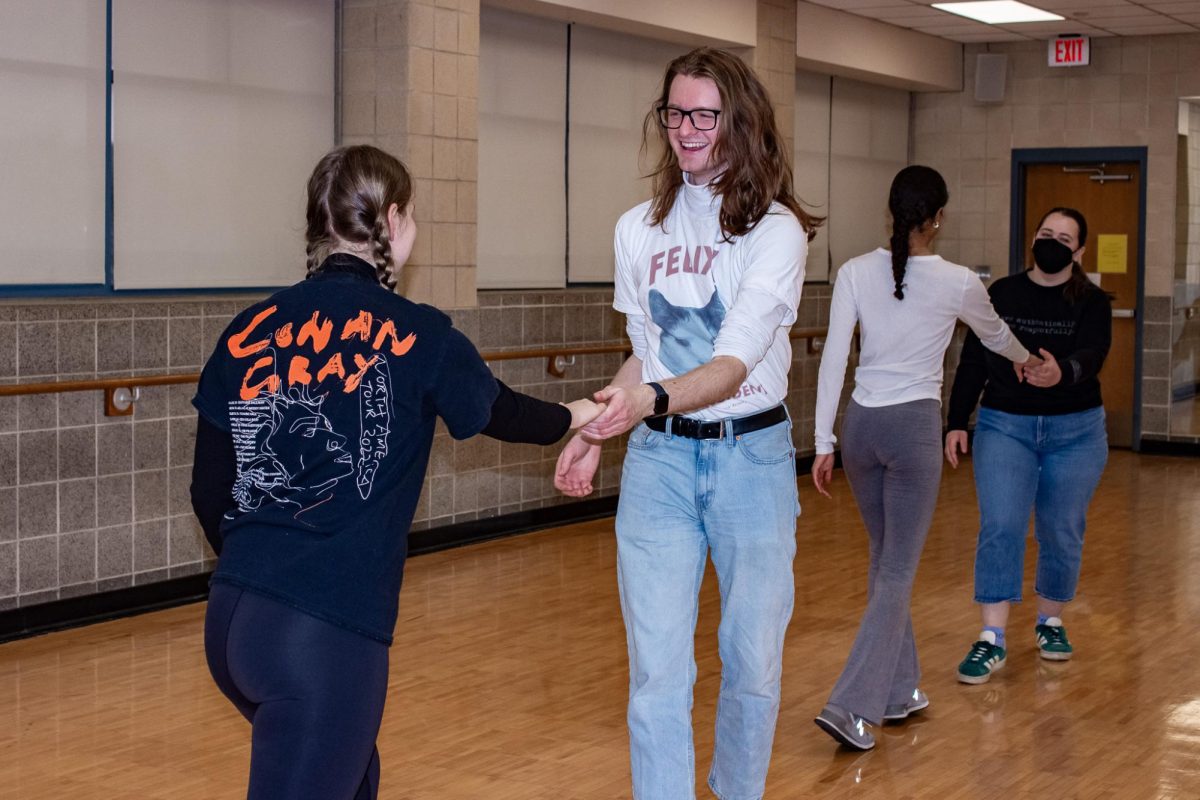On Tuesday, September 1st, Nanette Le Coat, professor of International Studies, gave a lecture titled “Why Ebola? Why Should we Care?” This was the first in a series of lectures on Ebola titled “Ebola: Lessons Learned” for the fall 2015 international studies colloquium.
The series of lectures in the colloquium have been made possible by several driving forces.
“I get some help from my friends such as Dr. Montoya and Dr. Blystone, and Dr. Kaissi in the Health Care Administration area,” Le Coat said. “I need to give a shout-out to two people who helped us organize this session, and that is Dr. Marc Colman, who is an alum and who’s been very generous to Trinity in multiple ways “¦ and Dr. Ruth Berggren, of the University of Texas Health Science Center’s Center for Medical Humanities and Ethics.”
The lecture began with a mention of key figures around the world in the battle against Ebola, including the patients and health workers who have succumbed to Ebola, as well as doctors who have made it their life’s mission to battle the disease.
“I think it’s important to know that the heroes are not just American,” Le Coat said, speaking of Sia Wanda Koniono, a Liberian Ebola victim; Mohammed Sengho, head of Redemption Hospital in Monrovia, Liberia; and Laurence Sailly, a French doctor and emergency coordinator for Doctors Without Borders.
Le Coat proceeded to name notable figures in the United States.
“Closer to home, we have Dr. Ian Crozier “¦ he contracted Ebola while working in Sierra Leone, and he was returned to the U.S. for treatment in Atlanta and [his doctors] thought they had cured him of the disease. But, after a while he started experiencing inflammation in his left eye. “¦ It turns out that Ebola was being harbored in his eye. So, he decided that he would use himself as an object of self-study,” said Le Coat.
Le Coat then told the story of Eric Duncan, a Liberian Ebola victim who had travelled to Dallas from Africa to join his fiancée. He was mistakenly sent home by hospital staff after visiting the emergency room with Ebola-like symptoms. On September 28, 2014, he was returned to the hospital, becoming the first Ebola patient diagnosed in the United States. Duncan died on October 8th and his family was quarantined for three weeks.
A documentary produced by Vice News titled “The Fight Against Ebola” was shown to the colloquium audience. The half-hour documentary gave a brief overview of the history of Ebola in West Africa and followed Vice reporter Danny Gold and his crew in September 2014 as they documented the fight against Ebola in Monrovia, the capital of Liberia.
“With around 3,000 confirmed cases of infection and nearly half of those cases having become fatal, Liberia is now the center point of the epidemic,” Gold said in the documentary.
The video showed how people in Monrovia live day to day, walking around with spray canisters of diluted bleach, washing their hands numerous times a day. “How to manage, how to be able to contain the disease, wherein you find deaths all over, it is beyond our capability, beyond our understanding. This is the reason why everyone is confused,” said Mohammed Sankoh, Medical Director at Redemption Hospital, in the documentary.
When asked what came to mind when watching the video, Robert Blystone, professor of biology, replied “Fear. You can see fear on some of those people’s faces, and many of us, I don’t think, have ever seen that before. These people were making life and death [decisions]. [They have] a loved one and [they] can’t get them any medical care “¦ and what comes from that is fear.”
A noteworthy aspect of the Vice documentary was the heroism of the Liberian people. Health workers and family members of the diseased were pictured bravely rushing to patients’ aid, even though they were aware that one small mistake could lead to fatal consequences for themselves.
“It’s not over till it’s over,” Le Coat said.
Notable speakers in future lectures include Gordon E. Schutze, professor of pediatrics and retrovirology at the Baylor College of Medicine (speaking September 15); Peter J. Hotez, dean of the National School for Tropical Medicine at the Baylor College of Medicine and president of the Sabin Vaccine Institute, U.S. Science Envoy (speaking October 20); and Mark W. Kline, chair of pediatrics at the Baylor College of Medicine and physician-in-chief at the Texas Children’s Hospital in Houston (speaking October 27).
“This is important because we want to underscore the point that global health studies is an interdisciplinary study “¦ it’s medical, it’s anthropological, it’s cultural, it’s historical, it’s psychological; all of these elements enter into play when you’re talking about global health,” Le Coat said.
Topics in future lectures will include “Culture and Health Issues in Western Africa,” “Preparing U.S. Hospitals for Ebola and other Epidemics,” “Parallels between the HIV and Ebola Epidemics in Africa” and “Campus Disaster Response.” The lectures will take place every Tuesday at 2:10 p.m. in Northrup 040 and are free and open to the public. A complete schedule can be made available by contacting Le Coat or Blystone.






